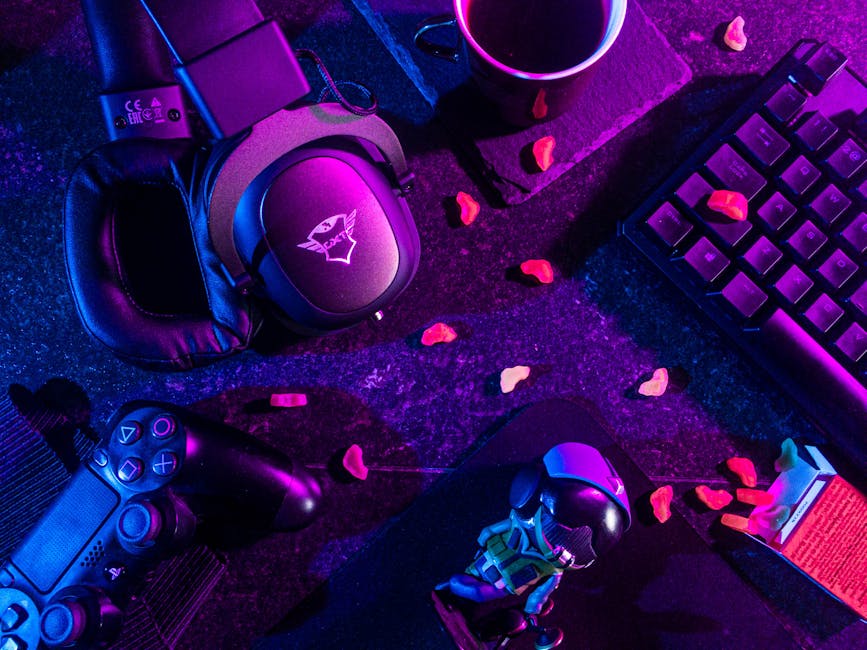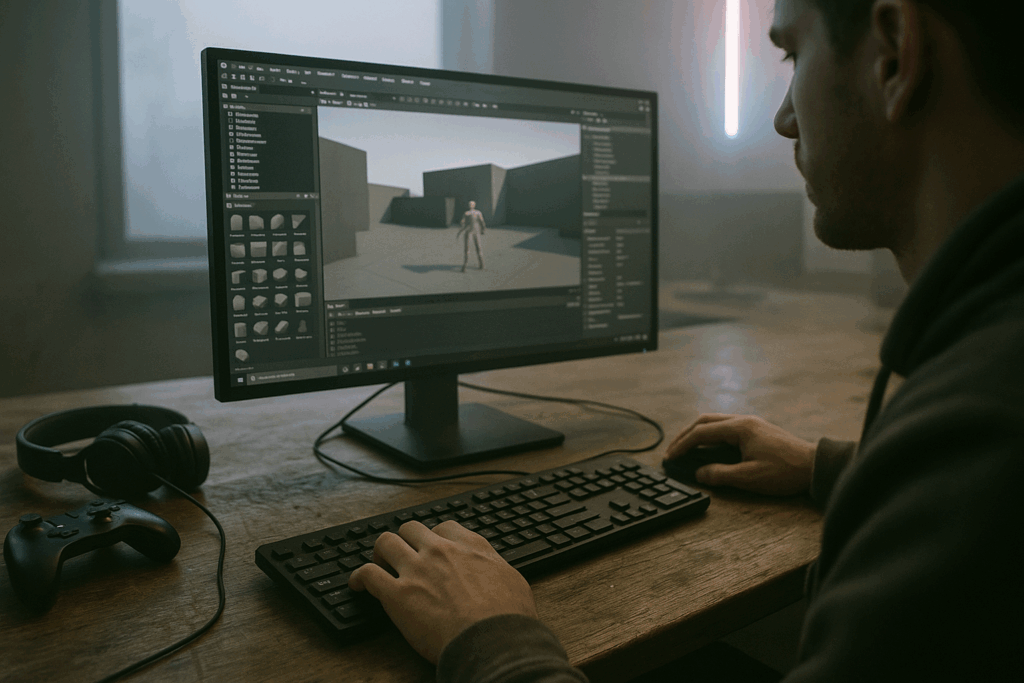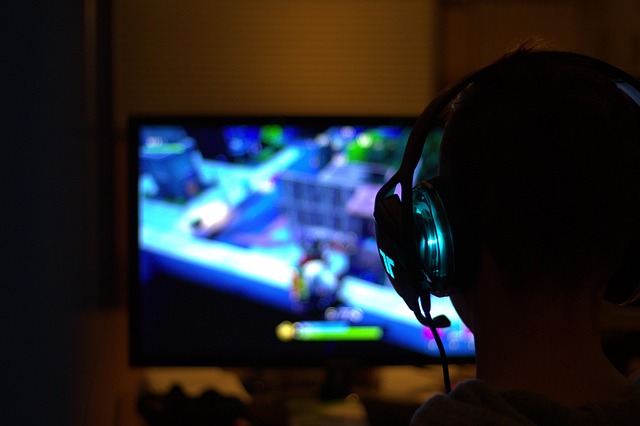Why Gaming Communities Matter
Gaming today isn’t just about high scores or leaderboard rankings—it’s about connection. Whether you’re a casual player or chasing competitive edge, the people around you shape the experience.
More Than Competition
Being part of a gaming community unlocks so much more than match wins:
- Camaraderie: Find players who speak your language—whether in-game banter or strategy talk
- Guidance: Learn from others’ experiences and get feedback that accelerates your growth
- Long-Term Growth: Stay motivated through plateaus by surrounding yourself with the right support
The Power of the Right People
Your community can be the reason you improve—or the reason you quit. A strong group keeps you challenged without becoming discouraging.
- Encouragement during frustrating grind sessions
- Honest critiques when you want to level up
- Shared wins that feel even better because they’re collective
From Solo Players to Collaborative Legends
Even the best lone wolves eventually benefit from a pack. Joining forces with people who match your energy and goals can completely shift your trajectory.
- Solo players discover tools, tactics, and friendships they’d never find alone
- Collaborations form naturally through trust and shared goals
- Over time, your community becomes your team, your launchpad, and sometimes—even your second family
Types of Gaming Communities
Gaming communities come in all shapes and sizes. Each kind offers a different flavor of support, engagement, and potential growth. Here’s how they stack up:
Platform-Specific Communities (Discord, Reddit, Steam Groups) are the most accessible and flexible. Discord is the current front-runner—fast-paced chats, voice channels, and bots keep interactions dynamic. Reddit lends itself to longform advice, meme-sharing, and slow-burn reputation. Steam groups, while less interactive, are useful for updates and coordinating game sessions within your library. The downside? These spaces can get cluttered. The signal-to-noise ratio isn’t always great, and moderation varies wildly.
Game-Centric Communities center around titles or genres: your MMORPG guilds, battle royale squads, or cozy indie couch-coop fandoms. These are great for bonding over shared gameplay mechanics, leveling strategies, and endgame goals. The deeper the focus, the stronger the camaraderie. You’ll get tactical advice, raid schedules, and sometimes lifelong gaming buddies—but if you lose interest in the game, don’t expect the group to pivot with you.
Dev & Creative Communities cater to modders, designers, and those building the future of gaming. Think forums focused on Unity asset swaps, pixel art critique channels, or early-access feedback groups. Here, you’ll find people who speak your language—debugging code, refining mechanics, or critiquing story arcs. These circles are niche but powerful. The catch? You need to bring something to the table. Passive lurking won’t get you far.
Each community type has its role. The best route? Join a mix. Social energy on Discord, deep strategies from game-specific clans, and fresh perspective from developers. Variety keeps you sharp.
What Makes a Great Gaming Community
Not all gaming communities are created equal. The best ones don’t just offer a place to chat—they become ecosystems of support, creativity, and shared purpose. Here’s what separates the great from the average:
Inclusive, Active Moderation
A healthy community starts with thoughtful moderation. When moderators are engaged and objective, they:
- Keep conversations respectful and on-topic
- Remove toxicity quickly
- Encourage newer members to speak up
- Make the community feel safe and welcoming for everyone
A Shared Mission or Purpose
Successful gaming communities align around a meaningful purpose. Whether it’s chasing high ranks, exploring creative mods, or simply having fun, a clear collective goal helps:
- Attract like-minded members
- Sustain engagement over time
- Build trust and mutual respect among players
Examples of shared missions include:
- Climbing competitive ladders in PvP games
- Collaborating on game design projects
- Creating fan art or lore-based content
Valuable Resources and Support Channels
The best communities do more than talk—they help members grow.
Look for communities that provide:
- Strategy guides and walkthroughs for newer players
- Dedicated feedback channels for sharing builds, videos, or level designs
- Spaces that support mental health, stress relief, and life outside of gaming
A supportive environment fosters both better gameplay and stronger friendships.
Consistent Events and Engagement
A great community doesn’t go quiet for weeks. Instead, it delivers steady interaction that keeps people coming back.
Signs of consistent engagement include:
- Weekly or monthly events: tournaments, AMAs, or game nights
- Regularly streamed content or community updates
- Prompts for discussion, polls, or creative challenges
Consistency builds trust—and trust builds loyalty. When a community shows up for its members, those members tend to stick around.
Finding a great gaming community isn’t just about numbers. It’s the environment, the leadership, and the common purpose that truly define what makes one worth joining.
How to Find the Right Fit
Start by getting clear on what you want. If your goal is laid-back weekend gaming, don’t accidentally end up in a sweat-filled comp squad dragging you through midnight practices. If you’re chasing a rank, learn from players better than you. Building a game? Find folks who speak dev, not just DPS.
Once you know your focus, treat community hunting like scouting a new base. Lurk. Watch the chat. How active is it? Are mods present? Do people actually respond—or is it just dead memes and noise? Good communities have clear rules, a consistent tone, and strong (but fair) leadership. Chaos = burnout.
Test a few before planting roots. Join two or three options, hang back, and watch how people move. Are they welcoming? Is advice helpful or just gatekeeping? Trust your gut—if it feels off at the start, it probably won’t improve.
Above all, stay open but keep your guard up. Not every group deserves your energy. A toxic vibe kills momentum fast. The right crew? They’ll hype your wins, help with your lows, and grow with you.
Communities That Go Beyond the Game
Gaming has outgrown the button-mashing stereotype. Behind the scenes, there’s a rising wave of communities focused on helping creators, streamers, and competitive players build real careers—and take care of themselves while doing it.
Many gaming spaces have leveled up from basic chatrooms to full-on creator hubs. Think Discord servers offering OBS tutorials, monetization chats, stream feedback sessions, and scheduling accountability channels. These aren’t fan clubs. They’re creative break rooms where people swap ideas, troubleshoot burnout, and stay consistent.
Career growth in gaming is also getting smarter. Communities now host mock interviews for esports orgs, review gameplay reels, and even run workshops on contracts and brand deals. Mentors and veterans are stepping up, and they know the terrain—it’s not just about clicks; it’s about staying power.
And yes, the mental load is real. Mental health channels have become staples in the best communities. Regular check-ins, low-pressure vent spaces, and advice threads remind gamers they’re not alone when it’s not all GG.
If your dream is to build games, not just play them, creator-friendly communities often double as incubators. For fresh devs, mods, or storytellers, many groups share free tools and learning paths to get started. Want a launchpad? Check out Free Online Courses for Budding Game Designers to lay solid groundwork.
How to Thrive in a Community
Joining a gaming community is one thing—thriving in it is another. Growth and connection come from consistent, intentional engagement. Here’s how to make the most of your presence in any gaming group:
Add Value—Don’t Just Take It
Communities thrive when members share and collaborate. Don’t wait for others to lead the way.
- Share tips, gameplay strategies, or useful resources
- Support new members or those struggling with a challenge
- Collaborate on community events, tournaments, or projects
Participate with Purpose
Asking questions is a great way to start conversations, but make sure you’re also contributing insights. Over time, your voice should be part of the solution.
- Ask questions that spark discussion and learning
- Offer advice based on your experience
- Engage in both text and voice chats where possible
Respect the Culture
Each gaming group has its own rhythm, tone, and unspoken rules. Understanding and honoring that culture is key to feeling welcome—and making others feel the same.
- Lurk first to get a sense of the atmosphere
- Follow guidelines and avoid forcing outside norms
- Stay mindful of sarcasm, humor, and nuances in communication
Show Up Consistently
Community isn’t just about being present when you need help. Consistency builds trust and makes you a recognizable, valued member.
- Join regular discussions, meetups, or stream nights
- Check in on fellow members’ content or progress
- Offer encouragement or feedback—even with a quick comment
When you invest authentically, the community gives back in ways that go beyond in-game wins. Meaningful relationships, creative opportunities, and even career connections often start with simply showing up and giving your best.
Final Word
Great gaming communities aren’t static—they grow with you. Like a solid guild, the best ones adapt, support your evolution, and keep showing up when you win, lose, or completely switch games. You’re not just signing up to swap tips or hit objectives—you’re joining a crew that can carry you through slumps, breakthroughs, and late-night grind sessions.
Look for a community that matches your current speed. Whether you’re piling on hours every night or just showing up on weekends, find a group that won’t burn you out or leave you behind. Honest feedback, encouragement, and a chill-but-focused vibe—that’s the stuff worth sticking around for.
And remember this: even the most solitary players shouldn’t try to go it alone. Whether your goal is to play smarter, build games, or pump out content, having the right crew will take pressure off, boost your skills, and make the whole thing a lot more fun.




